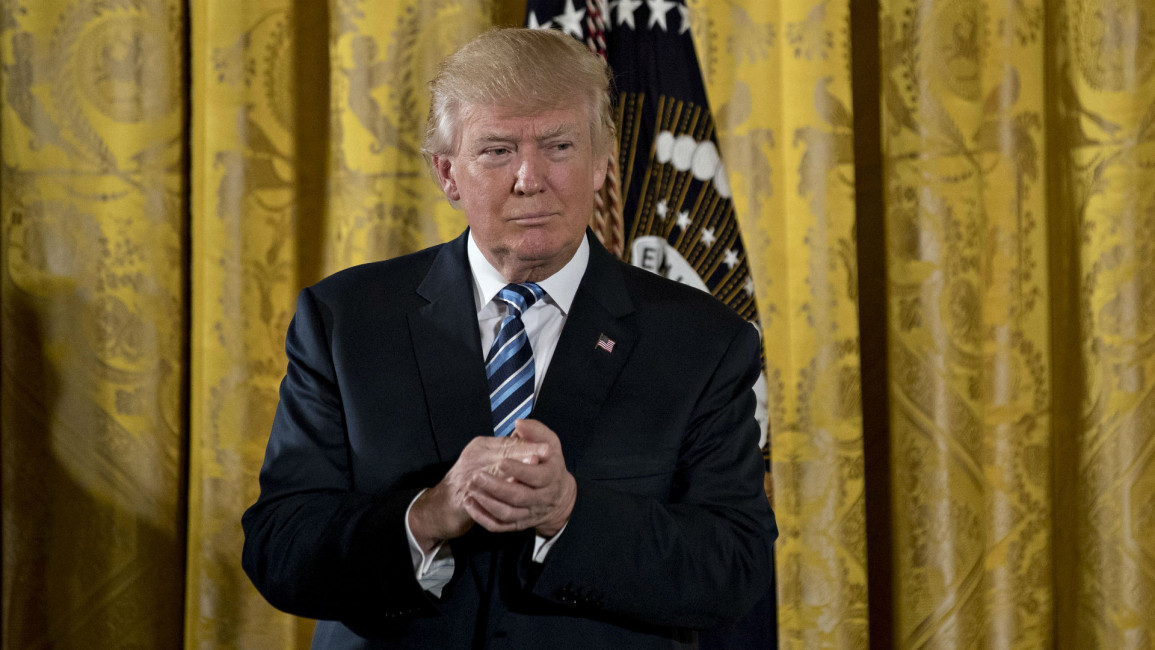Amid Muslim ban outcry, Trump to call Arab allies
US President Donald Trump will hold phone conversations with the leaders of Saudi Arabia and the United Arab Emirates on Sunday, amid an uproar over his travel ban for some Muslim majority countries.
The new Republican president, who took office on January 20, first will speak with King Salman of Saudi Arabia in the afternoon, before calling the UAE's Crown Prince Mohammed bin Zayed al-Nahyan.
Neither Saudi Arabia nor the UAE are among the seven Muslim majority countries affected by Trump's sweeping executive order barring visas for 90 days to migrants or visitors from Iran, Iraq, Libya, Somalia, Sudan, Syria and Yemen, citing alleged terror concerns.
The entirety of the Gulf region, in which Trump is thought to have strong business interests, was left unmentioned, including Saudi Arabia and the UAE.
But eyebrows were raised when Turkey and Egypt - both of which endured high-profile terror attacks throughout 2016 - were also omitted from Trump's list.
Many also pointed out that out of the 9/11 hijackers 15 of the 19 were from Saudi Arabia, while two were from the UAE. None were from the seven countries included in the Muslim ban.
According to Bloomberg News, Turkey and Egypt - though unstable - remain as a source of income for Trump's businesses in the region.
Trump's holdings include more than 500 private companies, some of which he creates for prospective deals, and the complex and changing structure makes it difficult for US to track his financial interests and partners.
In the days after his election victory, then president-elect Donald Trump shut down some of his companies, including four that appeared connected to a possible Saudi Arabian business venture, according to corporate registrations in Delaware.
To avoid a conflict of interest, Trump named his children - Ivanka, Donald Jr. and Eric Trump - as heads of his global Trump Organisation.
Trump has disclosed the names and some details about companies in public filings, but a complete picture of Trump's finances is unclear, given that he has broken with decades of presidential precedent by not releasing his tax returns.
The president's move to ban citizens from majority-Muslim countries prompted further criticism, however his seemingly apparent sifting of what purports "terror concerns" has left many questioning his intentions.
The migrant crackdown, which also included a 120-day suspension of the US refugee resettlement programme, sparked protests across the United States on Saturday.
A federal judge blocked part of the temporary immigration ban late on Saturday, ordering authorities to stop deporting refugees and other travellers stuck at US airports.


![President Pezeshkian has denounced Israel's attacks on Lebanon [Getty]](/sites/default/files/styles/image_684x385/public/2173482924.jpeg?h=a5f2f23a&itok=q3evVtko)



 Follow the Middle East's top stories in English at The New Arab on Google News
Follow the Middle East's top stories in English at The New Arab on Google News


